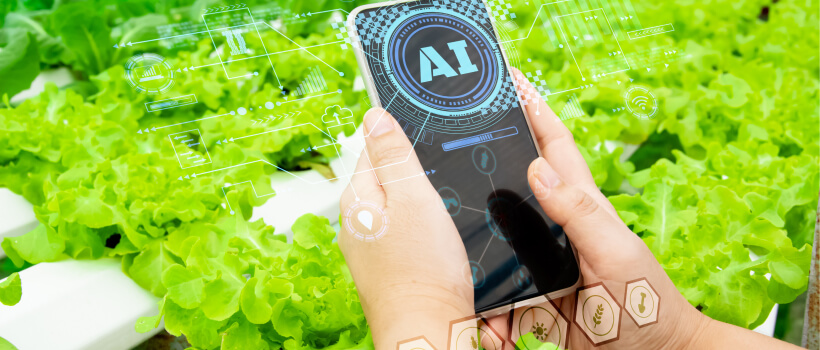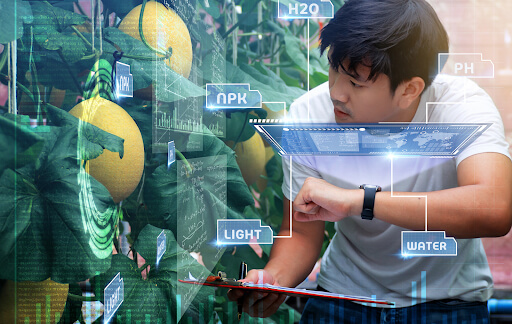 1-800-805-5783
1-800-805-5783 
The advent of Artificial Intelligence (AI) and Machine Learning (ML) has brought about a seismic shift in numerous sectors, and agriculture is no exception. This article explores the transformative influence of AI in agriculture, particularly its intersection with machine learning in enabling smart farming practices.
AI in agriculture involves the use of automated algorithms to perform tasks traditionally done by humans. It leverages machine learning, a subset of AI, where machines learn from data, identify patterns, and make decisions with minimal human intervention. The merger of AI and ML in farming has opened up new frontiers of possibilities, offering innovative solutions to maximize efficiency and productivity.
The role of AI in farming goes beyond automation; it brings an era of intelligence and precision to agriculture. It assists farmers in making data-driven decisions, thus reducing costs, maximizing yield, and promoting sustainable farming practices. Additionally, it brings predictability to a historically unpredictable sector, mitigating risks associated with volatile weather conditions and market fluctuations.

Despite its immense potential, the application of AI in agriculture is not without challenges. These include high setup costs, lack of technical skills among farmers, and data privacy issues. Furthermore, the AI systems’ effectiveness is dependent on the quality and quantity of data, which can be challenging to obtain in certain regions.
However, the future of AI in farming is promising. With advancements in technology, AI solutions are becoming more affordable and accessible. Moreover, as digital literacy improves, more farmers are likely to adopt these innovative solutions, resulting in a more resilient and sustainable agricultural sector.
The infusion of AI and machine learning in smart farming has set the stage for an agricultural revolution. As these technologies continue to mature, they promise to make farming more efficient, sustainable, and profitable. While challenges persist, the potential benefits of AI in agriculture far outweigh them. Indeed, in the face of a growing global population and environmental changes, AI in farming could very well be the catalyst that secures our future food supply.